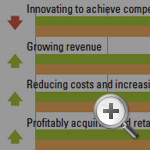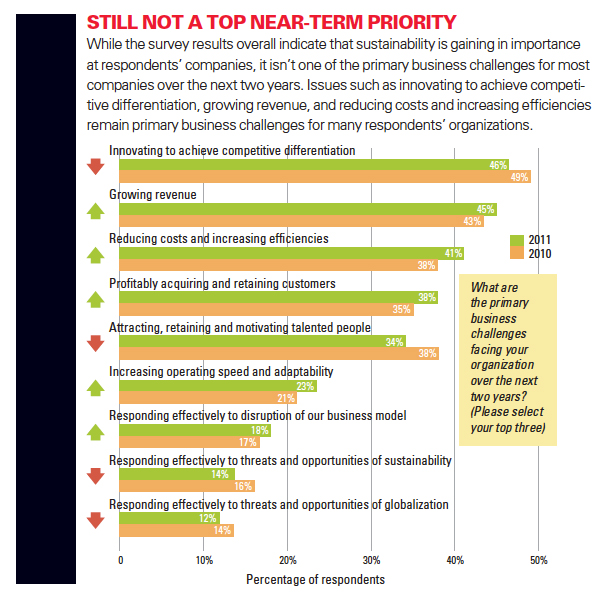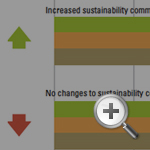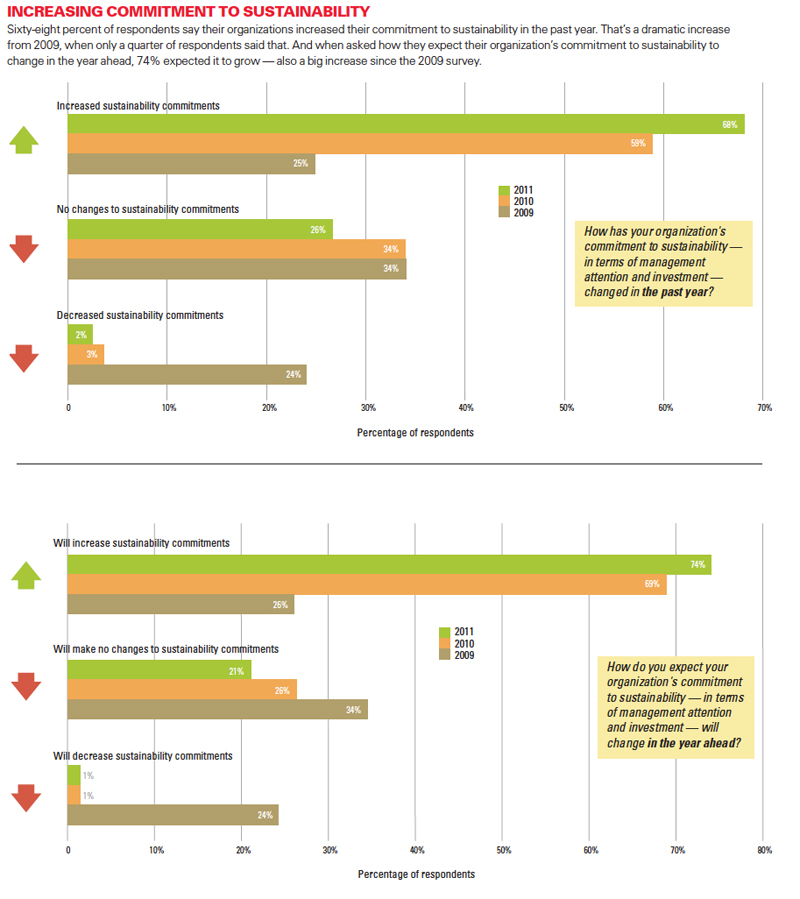First Look: Highlights from the Third Annual Sustainability Global Executive Survey
We asked: Are organizations spending more on sustainability? Does it merit more attention from the top? More than 4,700 managers responded. Here’s what they told us.
Topics
Leading Sustainable Organizations
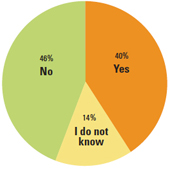
Forty percent of respondents say their organizations have changed their business models as a result of sustainability.
THIS IS THE THIRD YEAR that MIT Sloan Management Review has teamed up with the Boston Consulting Group on our Sustainability & Innovation Global Executive Study. Our inquiry includes conducting a survey to which more than 4,700 executives, managers and thought leaders from around the world and from a wide range of industries responded. The results of our third annual survey are now in, and we’ve begun analyzing the data.
Results from this year’s survey — conducted during June and July — indicate a growing interest in sustainability on the part of businesses. More respondents this year than last believe that sustainability-related strategies are necessary to be competitive. Respondents say their organizations are committing more money and attention to sustainability — and anticipate a continuing commitment in the coming year. These findings suggest — and many respondents indicate — that sustainability is becoming an element on the agenda of top management. However, in the short run, sustainability is often eclipsed by other pressing business issues: Most survey respondents do not consider sustainability-related topics to be one of the top three business challenges their company faces in the next two years.
The charts in this preview represent the answers to just seven of the survey’s 27 questions, presented as simple raw data. By the time the full report on the survey is published this winter, the survey results will be analyzed further to yield additional insights.
Note: Percentages may not add up to 100 due to rounding and, for some questions, not including those who responded “do not know.”
Still Not a Top Near-Term Priority
While the survey results overall indicate that sustainability is gaining in importance at respondents’ companies, it isn’t one of the primary business challenges for most companies over the next two years. Issues such as innovating to achieve competitive differentiation, growing revenue, and reducing costs and increasing efficiencies remain primary business challenges for many respondents’ organizations.

